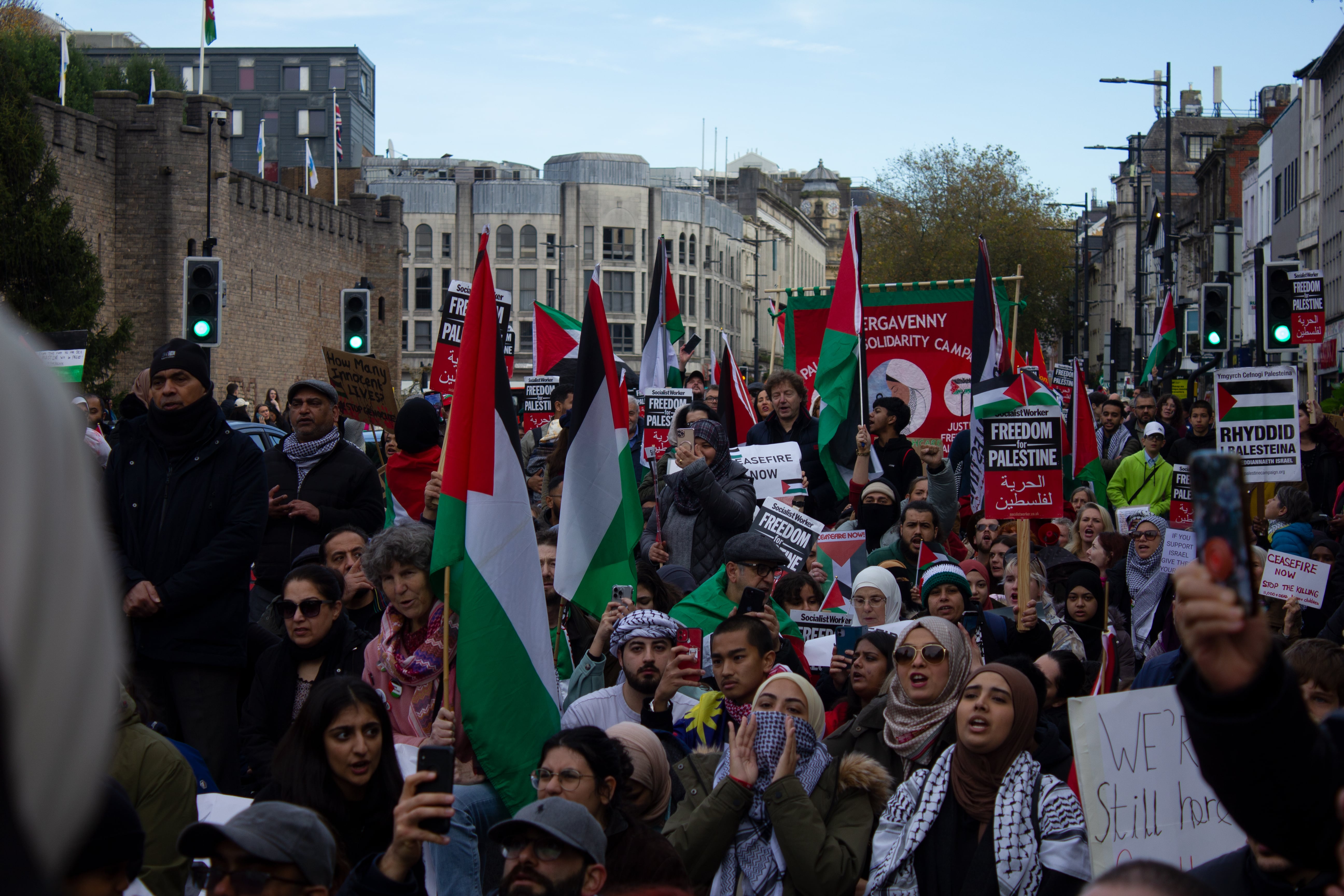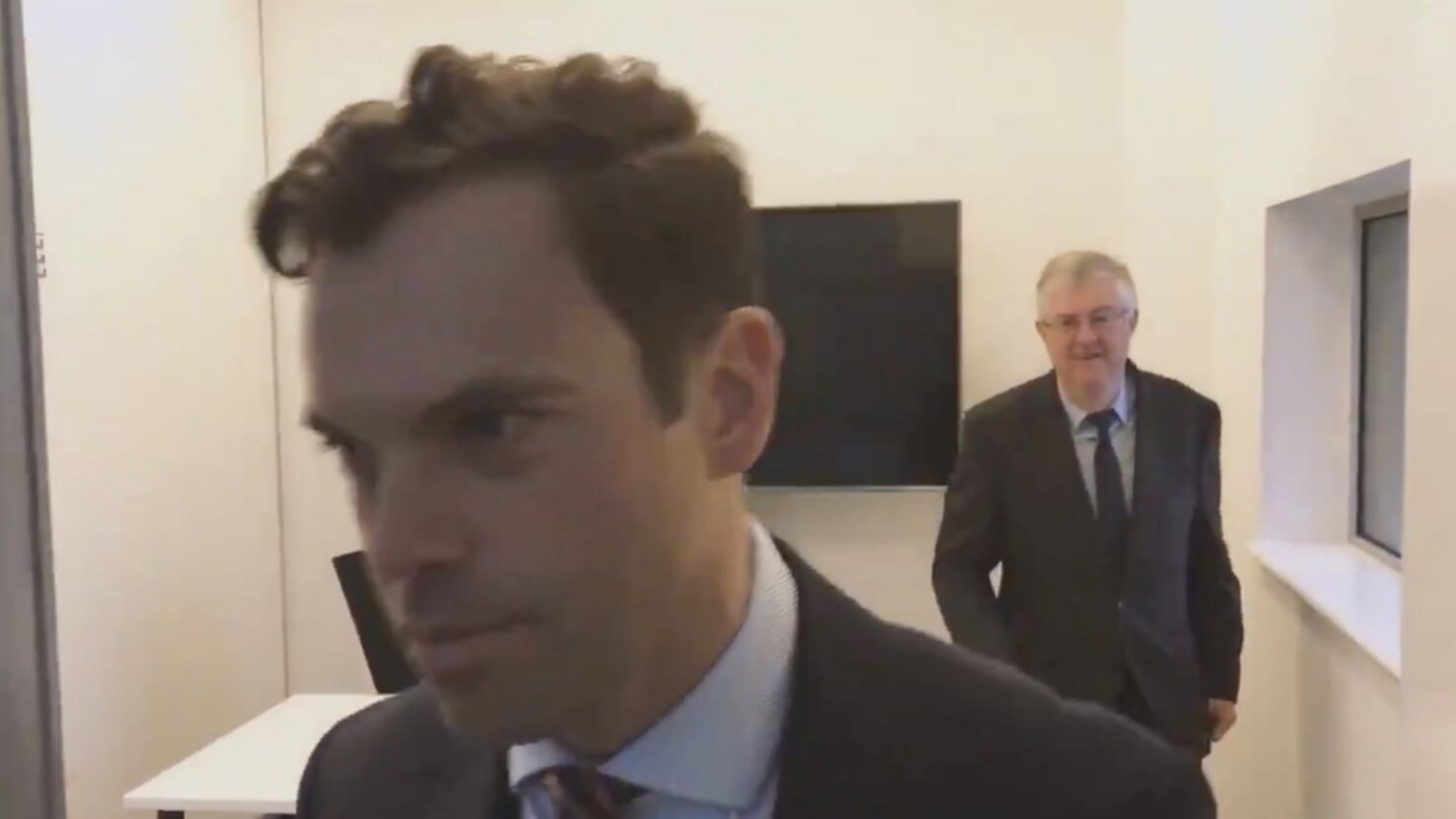“He Was Terrorised By The Police” -Mouayed Bashir’s Brother Speaks Out Against Newport Cops
Mohannad Bashir, 29, spoke with voice.wales about his brother, the police watchdog investigating Gwent Police, and the power of the people.
Image, Mouayed Bashir, left, and with his brother Mohannad, right, courtesy of the family
Mouayed Bashir, 29, died in February this year after being restrained by Gwent Police officers. He left behind a mum, a dad, and two brothers. voice.wales spoke with his older brother Mohannad Bashir, 32, about Mouayed and family’s fight for truth and justice.
voice.wales: Hi Mohannad, thank you for speaking to us in what must be such a difficult time, how are you and your family coping?
Mohannad Bashir: It’s been five-and-a-half going into six months now. It’s still a shock to be honest with you. We’re still trying to adapt to the new normal, because of course, our family will have a different view about our new normal. Because we have a new normal to deal with and to adapt. It’s shocking and sad, but at the same time it definitely brought the family a lot closer. I used to live in London, for example, been there for ten years, and it was only last weekend that I moved down back to Newport to be with the family and move down for good. After what happened I needed to be there with the family to support them through thick and thin. We need each other now more than ever and I’m supporting my mum, my dad, and my youngest brother.
vw: Are you able to explain what happened to Mouayed that morning?
MB: The police came in and restrained a young black man who suffered from mental health, who was having a mental health episode that morning actually. Restrained and handcuffed him, bound his legs and thighs. He had already sustained an injury on his side and was trying to recover from that. His body was sick and it was still recovering. They tasered him and just dealt with him like he was the most wanted man on that morning.
vw: Do you know the cause of death?
MB: So far they’re still looking into it. We had an initial autopsy report saying that there were no cuts, no bruising, no sign of a use of a taser, no broken bones. They said Mouayed died of a cardiac arrest.
vw: What did you think when you read that?
MB: I don’t believe any of it. The minute I received that, my legal team forwarded it to me and I was on the phone to them and I said that particular section didn’t make any sense. When a Muslim family member dies… me, my dad, and my brother had to wash the body in the morgue. It wasn’t easy but it had to be done because I knew that for my brother, as a Muslim man, it had to be done. What I’ve seen on Mouayed’s body during the washing ceremony on the morning of the funeral contradicts what I’ve read in that report.
vw: Given the pain and trauma you’re going through, what gives you the drive to keep campaigning for justice?
MB: First things first, Mouayed is my brother. He was the second youngest in the family. When we were growing up he was my best friend since we were little and I used to see him all the time because the youngest one wasn’t around then. He was the soul of the party. He was known in the community for being a kind, generous person who would give you the last penny in his pocket And the fact of what Mouayed had gone through, how he was manhandled on the day in front of my parents who felt hopeless, helpless. He was basically terrorised by the police Telling my parents not to interfere whilst they were killing their son. If I was there things would have been handled differently, let’s put it that way. I never thought that this would happen in the UK, I never thought it would happen to somebody I know. Next thing I knew it was my brother in his bedroom. Literally in this space I’m speaking from right now.
vw: The whole situation must have been so hard for you all, what’s the effect been on your mental health and the mental health of your family?
MB: This is the very same spot where it happened, I’m speaking to you from the same bedroom and as a family we’re living in the same house. We’re battling with the council to get moved out of here and that’s another fight we’re dealing with. It’s traumatising because every morning, my parents bedroom is right next to Mouayed so every morning before I moved in my mum would walk past the bedroom and pop her head in and say ‘Morning son,’ and then realise he wasn’t here. It’s the same thing for my little brother. They used to wind each other up all the time, having fun. He’s avoided the bedroom to try not to get hurt or worked up. The youngest in the family was trying to pull it together, hold it together for the family. My dad, bless him, he keeps downstairs all the time. He prays for Mouayed’s soul all the time. So it’s really hard. It’s definitely having an effect on the mental wellbeing of everyone here in the family. With regards to myself, luckily I’m getting therapy and counselling from my work, they’ve been really supportive. And being here, yes it sounds really ridiculous and crazy that I’m in the same spot where I lost my brother, but if anything it adds more fuel to the fire. It gives me that drive that we need to get justice for Mouayed.
vw: What do you think justice would mean for you?
MB: We want to know what exactly happened in this bedroom. There are so many questions that need to be answered. The IOPC has been very tight-lipped and it’s like pulling teeth. That’s the battle we’re dealing with. They’re supposed to be supportive and understanding but it’s hard to get something out of them but you’ll never get it out of them straight away. Either because they know what happened and they’re not trying to tell you straight-up, or they’re trying to work around it. I don’t know. But I have a weird feeling that they know what they’re dealing with. This is not a straightforward case. What happened is huge. Again, as I said before, you’d only hear of these deaths happening in the US. Not the UK, let aone Newport.
vw: You say at the end of your YouTube updates on the campaign: “The power of the people is greater than the people in power.” What is the importance of this phrase to you ?
MB: Because it’s true. Look at society right now. People are sick and tired of the people in charge right now. We feel we’re becoming powerless. At the end of the day, who are at the top? Not many of them. And who are they trying to rule? The rest of us. The power is in our hands. We can turn this around, of course in the right way. That’s why I keep repeating it because it’s so true. The power of the people is greater than the people in power. They are nothing without us, they need us more than we need them. It’s as simple as that and that’s the reason why I keep repeating it.



2 Comments
Comments are closed.